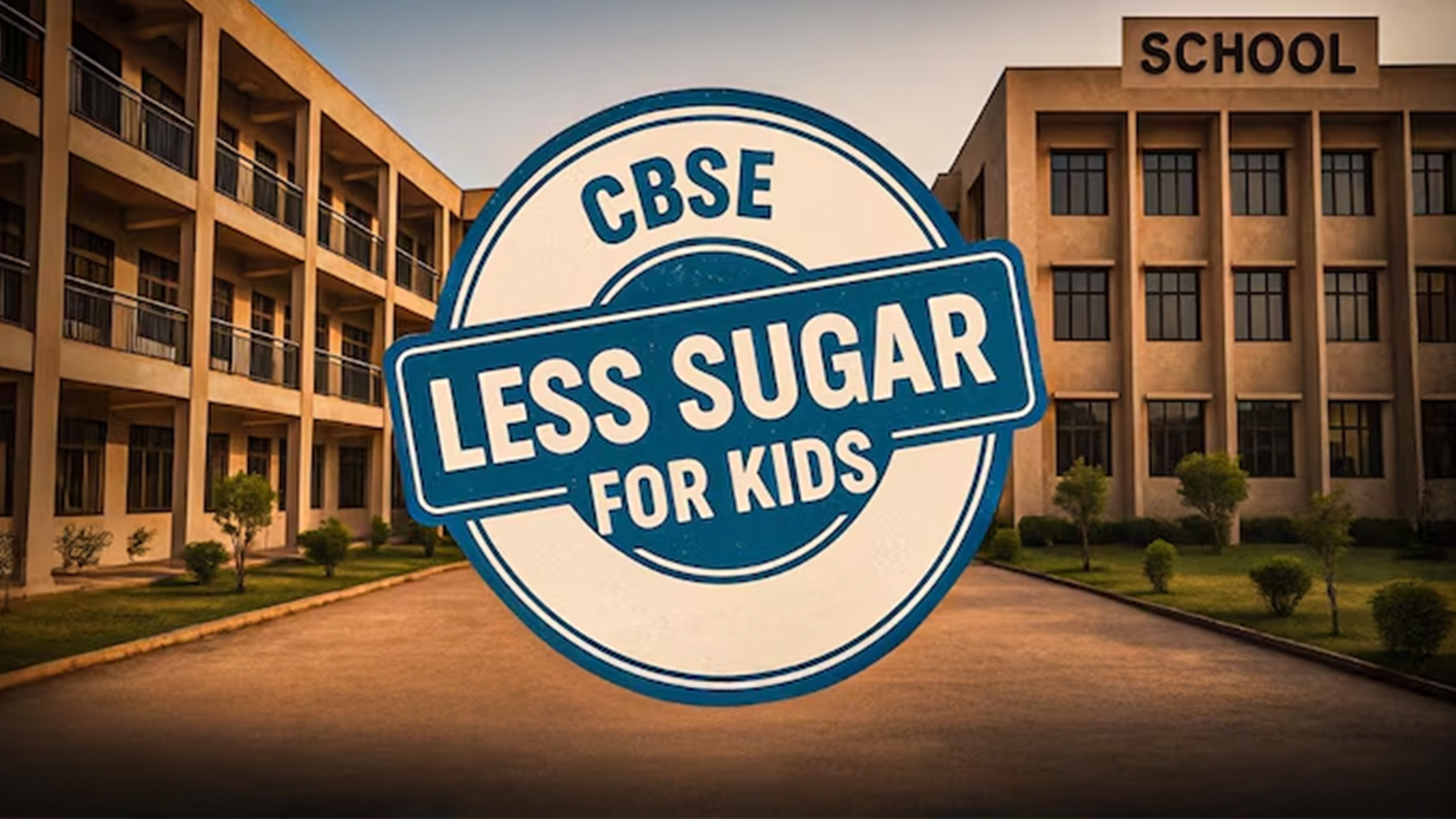
CBSE’s ‘Sugar Boards’ in Schools Could Transform Children’s Eating Habits, Say Experts
The Central Board of Secondary Education’s (CBSE) initiative to introduce ‘sugar information boards’ in affiliated schools has been met with strong support from nutritionists, diabetologists, and child rights activists in Bengaluru. Experts say this timely move could significantly shape children’s lifelong eating habits and combat the growing crisis of childhood obesity and type 2 diabetes in India.
A Growing Concern: Excessive Sugar Intake Among Children
Childhood dietary habits have come under increasing scrutiny, especially as studies indicate that Indian children consume far more sugar than recommended. Research reveals that children aged between 4 and 10 derive 13% of their daily calories from sugar, while adolescents aged 11 to 18 get as much as 15% — three times the recommended limit of 5%.
Health professionals point out that excessive sugar intake during childhood not only contributes to obesity but also sets the stage for metabolic disorders later in life, including type 2 diabetes.
Schools as Catalysts for Change
Suneetha Rao, Chief Nutritionist at NU Hospitals, Bengaluru, emphasized schools' pivotal role in instilling healthy eating habits. “Children eat at least two meals at school, and the school environment significantly influences their dietary preferences,” she said. According to Rao, sugar boards can serve as daily reminders, helping children make better food choices. However, she cautioned that for this initiative to succeed, schools must also provide information about tasty, healthy alternatives and ensure these options are available on campus.
“While we can’t eliminate the easy availability of unhealthy food, we can counter it through consistent awareness campaigns within schools,” she added. Rao also stressed encouraging children to bring nutritious lunches from home as a parallel strategy.
Sugar Boards: A Preventive Health Tool
Dr V Mohan, Chairman of Dr Mohan's Diabetes Specialities Centre in Malleswaram, hailed the sugar boards as a “much-needed intervention.” He pointed out that, unlike Western countries where sweetened beverages dominate sugar consumption, Indian children are more exposed to high-calorie junk foods like pizzas and burgers.
“Excess carbohydrate and fat intake, coupled with low physical activity and rising stress levels, are the main drivers of childhood obesity in India,” Dr Mohan explained. “Teaching children to include fruits and vegetables in their diet and encouraging regular physical activity are vital steps toward preventing type 2 diabetes.”
Beyond CBSE: Experts Call for State-Wide Implementation
The potential impact of CBSE’s initiative has sparked calls for broader adoption. Nagasimha G Rao, a prominent child rights advocate in Karnataka, urged the state’s education department to extend similar measures to all schools, regardless of affiliation.
He noted that the initiative aligns with Article 24 of the United Nations Convention on the Rights of the Child (UNCRC), which guarantees every child the right to the highest attainable standard of health. “Health education is a child’s right,” he said. “Expanding this initiative across all schools in Karnataka would ensure that more children are educated about the consequences of excessive sugar consumption.”
Understanding Labels and Sugar Limits: A Lesson for All
Dr Supraja Chandrasekhar, Director of Pediatric Services at DHEE Hospital on Kanakapura Road, highlighted the importance of understanding food labels. She explained the need to differentiate between naturally occurring sugars (like those in fruits) and added sugars (common in processed foods and beverages). “They all contribute to total sugar load and increase the risk of obesity and metabolic syndrome,” she said.
She shared a stark example: the recommended daily limit for added sugar for preschoolers is just four teaspoons (roughly 16 grams), yet many popular fruit drinks contain more than 20 grams in a single serving — far exceeding safe limits.
“Sugar boards will educate children and parents about daily sugar limits and help them make informed dietary choices,” Dr Chandrasekhar stated.
What Are Sugar Boards?
Sugar boards are visual information tools that will be placed prominently in schools to display:
- The amount of sugar in typical snacks and beverages.
- Recommended daily sugar limits for different age groups.
- Health risks associated with excess sugar consumption.
- Tips on identifying hidden sugars in processed foods.
These boards are not just about discouraging sugar consumption but are also designed to empower children with knowledge to make better choices in their daily lives.
A Step Toward a Healthier Generation
CBSE’s decision to implement sugar boards in schools is a proactive step in tackling rising health issues among India’s youth. With mounting evidence linking poor dietary habits in childhood to severe health conditions in adulthood, such initiatives may serve as critical interventions in changing the narrative.
Experts in Bengaluru are optimistic that, if implemented effectively and scaled beyond CBSE schools, sugar boards could lead to lasting health improvements and foster a more aware, informed, and equipped generation to lead healthier lives.



